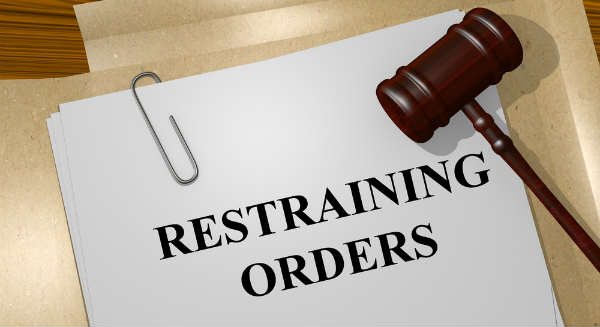When a relationship goes wrong or is on the verge of going wrong, things can become more negative than you thought possible. The legal system provides tools to help people who have found themselves in an angry or abusive relationship. The legal system cannot prevent every wrong, but it can give you some degree of protection.
A spouse turning physically or emotionally abusive and an acquaintance or stranger inappropriately acting on their infatuation are classic examples of “love” gone bad.
Just as the law has a role in love when people commit to a relationship through marriage, it also has a role when relationships collapse (divorce), become dangerous, or someone attempts to force an unwanted relationship. Enter the restraining order, or as it most commonly is known in North Carolina, the domestic violence protective order (DVPO).
The goal of a restraining order is to protect the applicant from the person it targets. The victim doesn’t need an attorney to seek a protective order, but a lawyer can make the process much easier.
The person served with the restraining order can be ordered to stay away from the applicant and locations the applicant frequents, including schools and workplaces. Penalties for violating a restraining order include jail, and different circumstances call for different types of orders.
What Is A 50B Protective Order?
North Carolina’s 50B domestic violence protective order is intended to shield the applicant from someone with whom they have had a personal relationship. For the purposes of a 50B, the other party in the personal relationship can be:
- A current or former spouse
- A person of the opposite sex the victim does or did live with
- A relative, including parents, children, grandparents, and grandchildren, who are 16 or older
- A person with whom the victim has a child in common
- A current or former household member
- Someone of the opposite sex the victim is dating or has dated
Violating a 50B Protective Order
WomensLaw.org details three ways to get help if someone violates a 50B domestic violence protective order:
Call police. Tell authorities someone is violating a DVPO. The district attorney can prosecute a DVPO violation, and an offender can be jailed for up to 150 days.
Contact a magistrate’s office. Request a warrant from the magistrate’s office for the violator. The district attorney can prosecute, with a potential penalty of up to 150 days in jail.
Engage civil court. A DVPO violator can be found in civil contempt for violating any requirement of a DVPO. If you file a “motion for order to show cause” through the clerk’s office and the court finds the defendant in contempt, he or she can be fined or given jail time.
What Is a 50C Protective Order?
North Carolina’s 50C civil no-contact order is designed to protect the applicant from nonconsensual sexual conduct or stalking by people they are not intimate with or related to, people ranging from co-workers and neighbors to strangers.
For the purposes of a 50C, nonconsensual sexual conduct is “generally any intentional touching, fondling, or sexual act (either directly or through your clothing), for the purpose of sexual gratification or arousal that you did not consent to,” according to WomensLaw.org.
The definition of stalking “is generally when someone repeatedly follows or harasses you with the intent to place you in reasonable fear for your safety or your immediate family’s safety or to cause you emotional distress (harm),” WomensLaw.org explains.
Violating a 50C Protective Order
The classic example of a 50C protective order case is a fan obsessed with a celebrity. Celebrities who have had to request other states’ equivalent of North Carolina’s 50C include Gwyneth Paltrow, Selena Gomez, Ryan Gosling, Taylor Swift, Justin Timberlake, Halle Berry, Usher, Lady Gaga, and Miley Cyrus.
However, you don’t have to be a celebrity to have an obsessed fan. If a judge deems a person merits being put under the restrictions of North Carolina’s 50C protective order to shield you from nonconsensual sexual conduct or stalking, there are penalties for violators:
- An offender can be held in civil or criminal contempt of court.
- A person who stalks a victim while under a 50C order can have the offense elevated from a misdemeanor to a felony.
And it doesn’t take a 50C to justify the arrest of someone accused of violating North Carolina laws against threats, harassment, or stalking.
Where Can Victims Turn for Help and Answers?
Restraining orders often spring from cases of domestic violence. In North Carolina, there are a variety of resources available to victims, including:
- North Carolina Coalition Against Domestic Violence, which offers a lot of useful information and lists places people can turn for assistance
- North Carolina Department of Justice, which offers answers to legal questions and an assortment of links that victims may find helpful
If you choose to tackle the restraining order process with an attorney at your side, the Raleigh family law firm of Charles R. Ullman & Associates is the place to turn for a certified specialist in family law who knows North Carolina, its courts, and the resources available to people facing these types of issues.
Contact Charles Ullman & Associates today to schedule a consultation.

